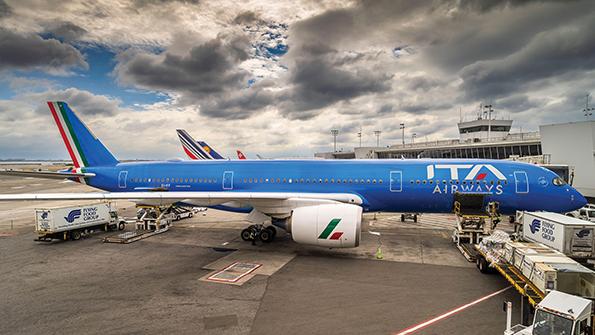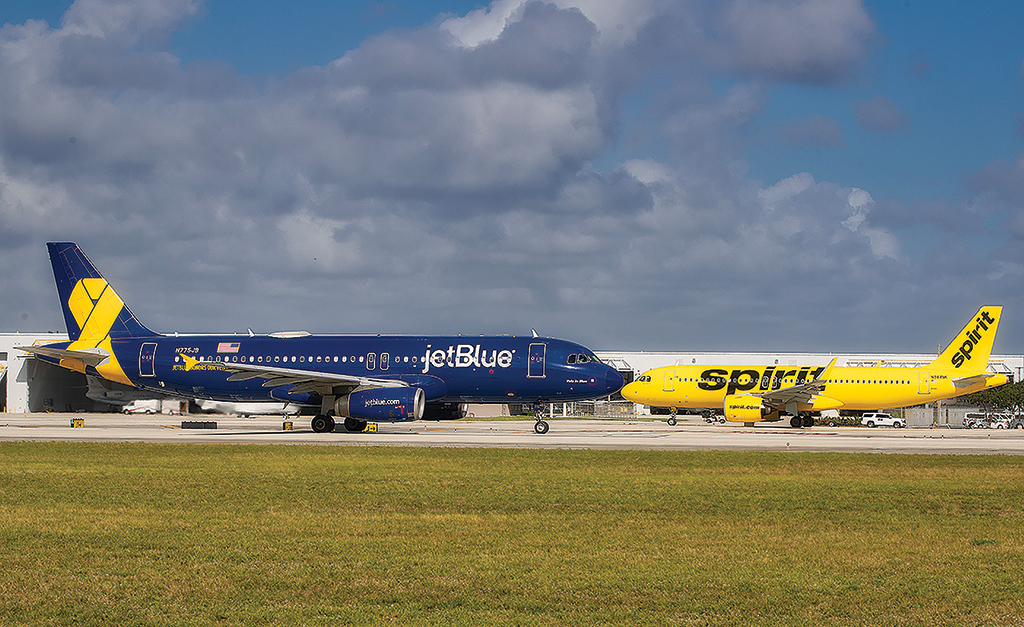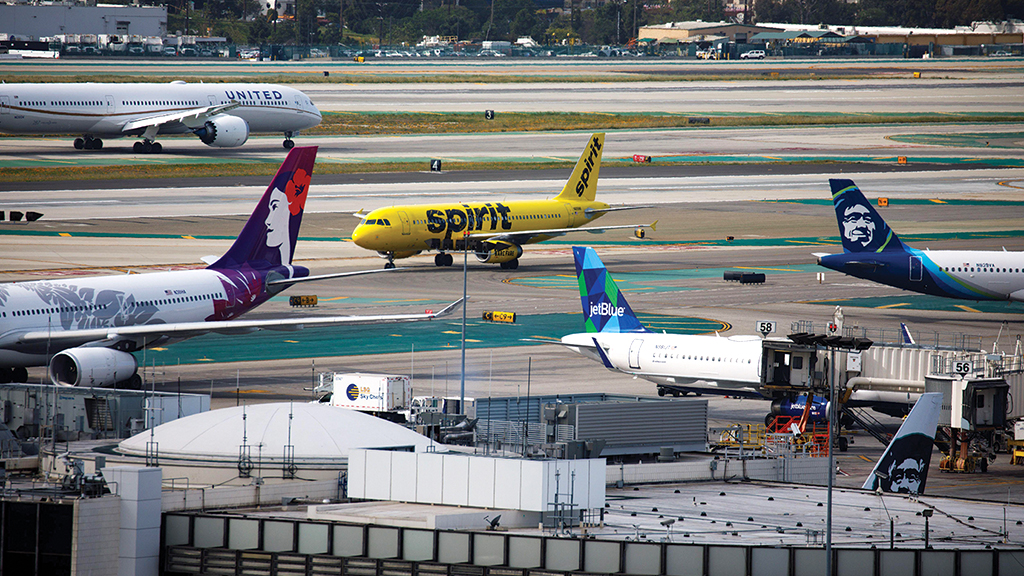Airlines Take Slow Steps Toward Major Consolidation Moves

Lufthansa is awaiting a decision from the European Commission on its bid for a stake in ITA Airways.
For airlines around the world, 2024 could be a year of important decisions and milestones in mergers and acquisitions—but perhaps not many concrete changes to their operations just yet.
Major carriers are looking to consolidate, with some having made the leap by agreeing to deals in principle. However, the completion of these transactions is often painfully slow.
In Europe, the three big legacy carriers see the potential for great change to the airline landscape. Lufthansa is focused on gaining approval for its deal to acquire a stake in Italian flag carrier ITA Airways. The sale process was already convoluted, and the road to regulatory approval is proving lengthy as well. Talks with the European Commission’s competition authority have dragged on, making any concrete effect on the two companies’ operations unlikely before the winter of 2024 at the earliest.
- TAP Air Portugal’s central location attracts interest
- Korean Air still needs European, Japanese and U.S. approval for Asiana merger
For International Airlines Group (IAG), parent company of Aer Lingus, British Airways, Iberia, Level and Vueling, obtaining approval for its Air Europa deal—expected by the end of 2024—will be an important step as it seeks to maximize its Latin American network and strengthen its Madrid hub.
Air France-KLM, meanwhile, is boosting its presence in the Nordic region with its move to take a stake in Scandinavian Airlines (SAS). The strategy makes sense, according to John Strickland, director of JLS Consulting. “With some uncertainty about the political outlook for aviation in France, but particularly in the Netherlands, it gives them another area of growth in traffic if they’re having problems in their main hubs,” he says.
All three European legacy groups have also expressed interest in TAP Air Portugal as the Portuguese government moves ahead with privatizing the carrier.

“Air France-KLM and IAG are the most natural fits in terms of their market,” Strickland says. “But with IAG’s presence in Spain, they would have to assuage potential political concerns in Portugal that IAG would try to feed all its traffic via Madrid. I don’t see this being resolved quickly, and the challenge will be how much interest the government wants to retain. Any potential investor can see that this has been done once before and ended in tears.”
Any of the three, as successful bidder, would have to manage the TAP operation in parallel with another deal, but in any case the process will be slow.
“2024 could be a year of ‘work in progress,’” Strickland says. “There may be greater clarity on TAP, ITA and SAS, but it will come against the backdrop of an uncertain economic outlook and a changing political outlook in Europe, manifested in particular in the Netherlands. Practical concerns such as aircraft shortages and delivery delays are also occupying management’s time, so there’s a lot to think about. I don’t see any of these deals racing over the line.”
In the U.S., too, the landscape is changing, albeit slowly. The ruling in New York-based JetBlue Airways’ antitrust trial—initiated by the U.S. Justice Department over a planned acquisition of ultra-low-cost carrier (ULCC) Spirit Airlines—is due around the beginning of 2024 and could set the tone for market consolidation in the country in the new year. The government contends that a combined Spirit and JetBlue would eliminate “about half” of all ULCC seats in “the latest step in a trend toward consolidation in the airline industry,” while projecting net harm to consumers of roughly $1 billion a year.

JetBlue and Spirit maintain that the merger is pro-consumer and necessary to compete more effectively with the largest four network carriers. “We’ve spent 25 years now carving out 5% of the market,” says JetBlue CEO Robin Hayes. Should a merger proceed, JetBlue attorney Ryan Shores notes, “JetBlue would go from about a 5% player to just over a 7% player in this country—it would still be less than half the size of the smallest Big Four airlines.”
As those court proceedings drew to a close in December, Alaska Air Group announced an agreement to acquire Hawaiian Airlines for $1.9 billion. The fifth-largest U.S. airline seeks to expand with Hawaiian into a combined entity but plans to maintain both brands. The deal, approved by the airline boards, will still face regulatory approvals and a vote from Hawaiian Holdings shareholders. If it goes through, the acquisition would be Alaska’s second in less than a decade after acquiring Virgin America in 2016.
Alaska CEO Ben Minicucci attributed the timing to opportunity and a fair price. “While we do not view this combination as an imperative for the continued success of Alaska, we do see this as a unique opportunity at this moment in time to accelerate and enhance the strategy that we’ve been deliberately cultivating over the past several years,” he said.
In Asia, while Korean Air’s proposed takeover of rival Korean carrier Asiana is one of the most significant merger efforts in the airline industry, it is also taking time to come to fruition. Much progress has been made, but some major regulatory decisions remain to be made and will likely come in 2024. The acquisition was first proposed in November 2020, and Korean Air sent applications for approval to several overseas jurisdictions in January 2021. These approvals are needed in markets served by both Korean and Asiana.
South Korean regulators have granted clearance, as have key competition authorities in Australia, China, the U.K and other markets. In some cases, slots had to be given back to help preserve competition. However, Korean Air still needs approval from the European Commission, Japan and the U.S. The European Commission has outlined concerns about the takeover. Korean Air has offered remedies such as divesting slots on certain routes and selling Asiana’s cargo division.







